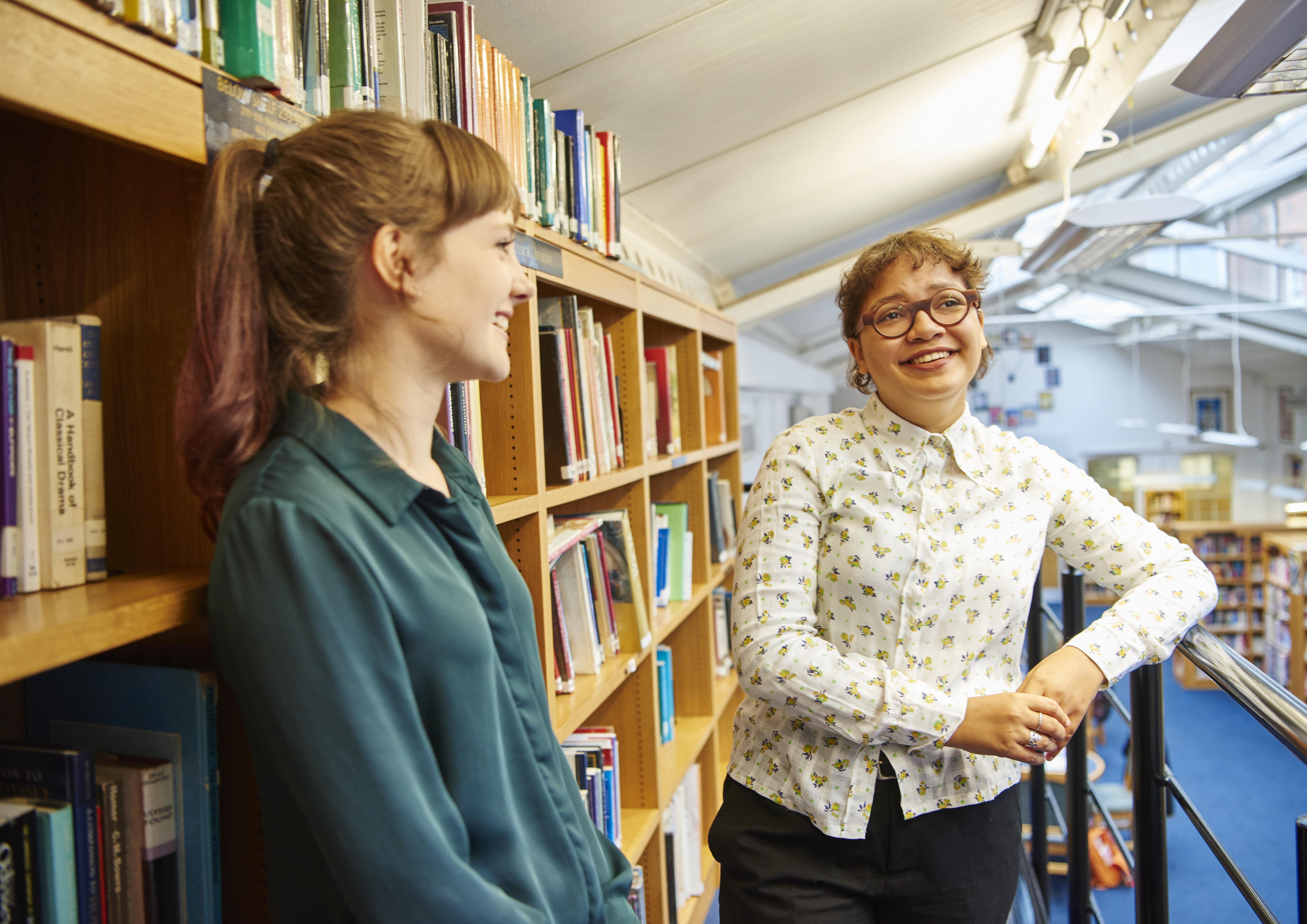Advice for your next steps



We are aware that you may be experiencing a whole range of emotions from excitement to feeling a little nervous about your next chapter. It is natural for pupils to find the transition from sixth form to university, apprenticeship, or a career a little overwhelming. The sixth form team, with the help from Tess Bhokanandh (lead school counsellor), have put together this guide to help provide additional support for your next step.
#

It is natural to feel apprehensive about leaving school and entering a different environment. We often think change will be difficult, but in fact, we adapt much faster than you think.
It might be useful to think of the reasons why you feel apprehensive. Is it to do with the unknown or uncertainty? Is it to do with a loss of control? Do you have imposter syndrome (an inability to believe ones success is deserved)? All of these factors can explain why people do not like change.
However, you have shown throughout your school career that you are incredibly resilient and have adapted to new situations with ease. For example, think back to when you started at Emanuel: you may have known a small number of people or no one at all, but you settled in and all those aspects of your school life that once were brand new, started to become the norm.
This will happen with any new situation that you go into.
The key thing to remember is that all those emotions and nerves you might be feeling are temporary. Nothing is permanent.
If you’re at university
• Get to know your housemates and people on your course
• Suggest going for coffee or a drink in the union
• Attend the Fresher’s Fair
• Join clubs and societies
• Go to the gym
• Go to the library
• Apply for opportunities within your course
If you’re doing an apprenticeship or going into the workplace
• Get to know your team
• Attend social events in the office
• Suggest meeting up with people from your university course
• Go and see friends from Emanuel that are at university
• Arrange social gatherings for when people return from university
Making friends
It’s common to worry that you won’t make friends at university. However, it is important to remember that everybody will be in the same position as you. Very few first year students will know anybody else at their university, so it is likely that they’ll be experiencing the same concerns. In fact, in a survey, more than half of students found it easier to make friends than they had expected.
Missing home
Perhaps you aren’t worried about missing home and you can’t wait to get started. Even so, the likelihood is that someone you know or perhaps even you yourself at some point may start to miss home.
Moving away from home is a change that can be worrisome but is one that affects everyone at some point in their life. Remember that technology can make the world of difference, as it’s easy to get in contact with the people you miss.
It can also help to prepare for some aspects of living away from home that require adjustment to your usual routines, such as food shopping, cooking, laundry etc. You could plan out your time for the week, share tips and ideas with other students or even share these responsibilities with friends by taking it in turns to cook meals, buy food etc. Depending on where you are you might be able to take advantage of university canteens and washing facilities to make living away from home easier.

Here are links to some free short courses to help develop a growth mindset, selfawareness, and resilience:
How to develop a growth mindset
How to develop resilience
How to develop self-awareness
Neuroscience and learning
Developing career resilience
Speak to student support services. Students from all backgrounds can find help with a range of issues such as:
• Finding accommodation
• Getting help with improving academic and study skills
• Discovering which bursaries and hardship funds are available
• Help with budgeting and managing finances
• Accessing mental health and wellbeing services
• Access to support for disabilities and learning differences
• General welfare advice
Save the student website offers help on finance, banking, saving money, jobs, accommodation, and many other topics.
During your time at Emanuel, you have had the benefit of Firefly tasks, academic reminders, and daily interactions with your form tutor to help you organise your time effectively.
When you go to university, you may feel a little lost without these structures. This is completely normal. It’s better to start thinking about how you’re going to manage your time before you start – preparation is key! Invest in folders, a diary, and a calendar.
Write down all your deadlines on the calendar or put them in your phone and set reminders for 2 weeks or 1 week before.
The University of York have put together this study guide to help you with study skills such as time management and organisation: Being Organised - Study Skills.


1. Try not to compare yourself to your peers
2. Talk to friends and family about your worries
3. Speak to a trusted teacher or professionals
4. Join or form a study group
5. Make time to do things you enjoy
6. Remember there is more to life than passing exams
Remember that everyone is in the same situation when you start at university. Speak to your peers and course tutor. There is still a huge amount of help available at university.
Here are links to some helpful websites:
Register with a GP and a dentist
Sexual health information and support
Help if you’re a student with a learning difficulty, health problem or disability
Healthy diet – One You Easy Meals free app
If you have any concerns about your mental health or a friend’s mental health, then here are some links for support:
Hub of Hope (www.hubofhope.co.uk)
The Hub of Hope is the UK’s leading mental health support database. The services and support listed on the Hub of Hope are for when we are struggling or need extra support. All you need to do is enter your postcode and select your concern, and you will find a list of mental health support and services.
British Association for Counselling and Psychotherapy bacp@bacp.co.uk
Self-referral at Catch22 Call NHS 111 Samaritans on 116 123

If you are affected by a crisis abroad call the FCDO (Foreign, Commonwealth & Development Office) on +44 (0)207 008 5000.
Before you travel, you should:
• Make sure you have appropriate travel insurance
• Check the Foreign Travel Checklist
• Sign up for FCDO Travel Advice email alerts
• Find information from the nearest British embassy, high commission or consulate
Just in case:
• Reporting a crime abroad
• Lost passport? Apply for emergency travel document

UCAS advice: Gap year ideas
Working abroad: Safer travel and volunteering abroad
Useful links:
• Year Out Group
• Real Gap Experience
• Volunteering England
Free debt advice: Step change
Drug and alcohol advice: Talk to Frank, we are with you and Drugs and Me
Harm reduction: We are the Loop
Checklists for university
UCAS - BIG list of everything you need Save The Student - What you need to take to university
• Valid passport
• University admission acceptance letter
• Course acceptance letter
• Accommodation contract
• Student finance documents
• Scholarship or bursary letters
• Insurance documents
• Passport photos
• Vaccination history (speak to your GP)
• Prescription copies
• Bank debit card
• Student discount cards (e.g. 16-25 railcard)



University is a whole new world! It took me a while to adjust, but I’m loving the freedom and independence.
(Leaver 2022)


As expected, I felt nervous heading into my first year away from home and my normal routine, however, within days my anxieties were put at ease.
(Leaver 2021)


University lifestyle, while much more busy and perhaps more nerve racking than school, is a lot more fun. I found that quickly I was amongst a great bunch of people who were all incredibly easy to get on well with.
(Leaver 2021)


Going to uni has been some of the best times of my life so far and I have learnt so much about myself (and my degree too!).
(Leaver 2022)


I settled in quickly and met people that I knew would be friends for my life.
(Leaver 2020)


I was very nervous going to university. I remember driving with my parents absolutely terrified in the back of the car, but the moment I stepped into the flat I knew I was going to be fine.
(Leaver 2022)

What can I do as a parent of a child going to university?

Try and keep in regular contact by video chat or messaging. Receiving letters or care packages can be a huge boost so have a think about what home comforts you can send them to enjoy.
Talk to your child about things that they think will help them relax and de-stress. If they can’t think of anything, suggest mindfulness or meditation apps, getting outside for a walk, eating healthily, keeping to a routine where possible. You’re looking to help them work out what they think might make them feel better in themselves. You can read more tips for helping your child when they feel anxious.
Practise active listening with your child. Really pay attention when they talk about how they feel and make sure to validate their feelings. Don’t say things like, “I’m sure you will feel better in the morning,” or “You just need to get on with it!” as this is unlikely to be helpful to them.
Help them to recognise if they’re having anxious and stressful feelings. This could be lack of motivation in studying, not wanting to socialise, nail biting/picking, stomach issues etc. Help them listen to their bodies.
Get a steer from your child about how often they would like to chat to you and follow their lead.
If your child seems to be finding things difficult, encourage them to reach out to student welfare. Some universities have a Nightline service . Or let them know about services such as Kooth and The Mix, which offer online chats with counsellors.
Let your child know it’s OK to call you at any time, even in the middle of the night. Reassuring them that you are there for them, no matter what, is really important.
Encourage them to register with the local GP.
If you have concerns about your child’s mental health while they are at university suggest having a regular time to check in each day. It can be as small as a WhatsApp message or a call, whatever works for them. You may have to be flexible depending on what they feel comfortable with.
Put a safety plan in place with your child. Look at who they can contact on site and by phone when in distress. Is there someone they live with they trust and can turn to? Can they give your number to that trusted person so they can call you if your child feels unable to?
If you’re really worried, let them know that if you don’t hear from them you will call the university to do a welfare check.

The uni will normally connect the kids who are living in the same halls block so they can get to know each other a little bit over social media. Helps to at least know peoples names when you arrive.
Parent of 2022 leaver
Don’t expect to spend quality time with your child at drop off - I was kicked out after half an hour!
Parent of 2021 leaver
They go with very high expectations that are often not realised in the first week. Don’t panic! They have strong friendships at Emanuel which take time to replicate elsewhere. They will find their tribe but it just takes a bit of time.
Parent of 2022 leaver
Be prepared to be spending a lot of money on Trainline! The railcard is worth it!
Parent of 2022 leaver
